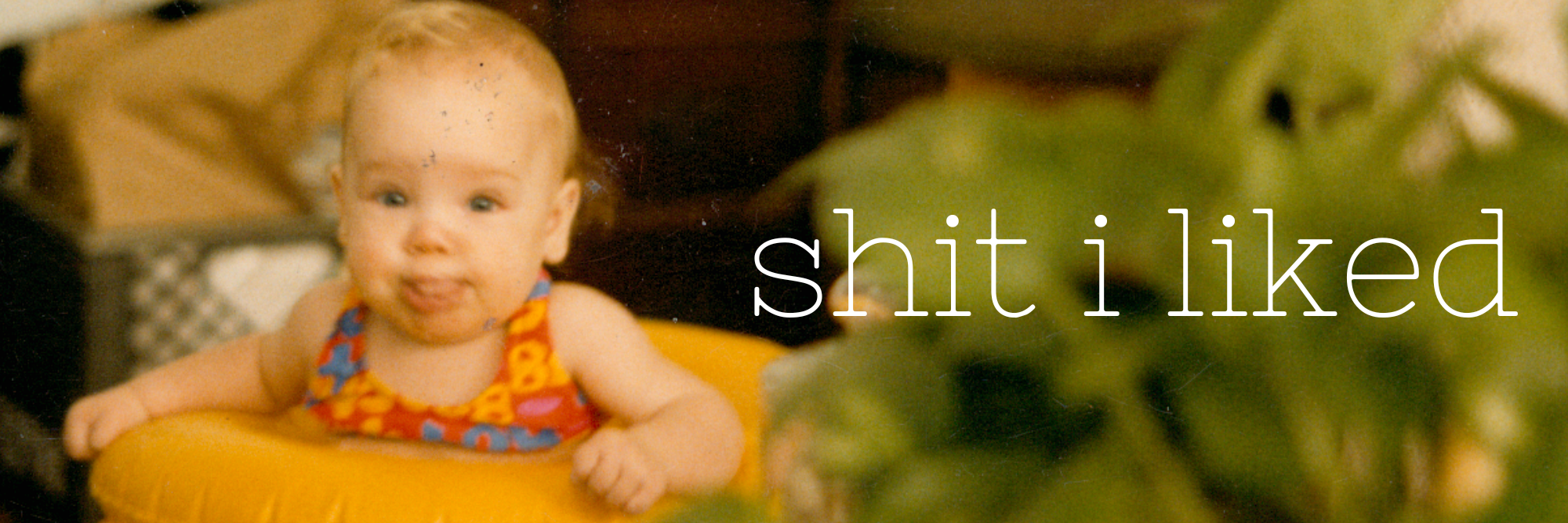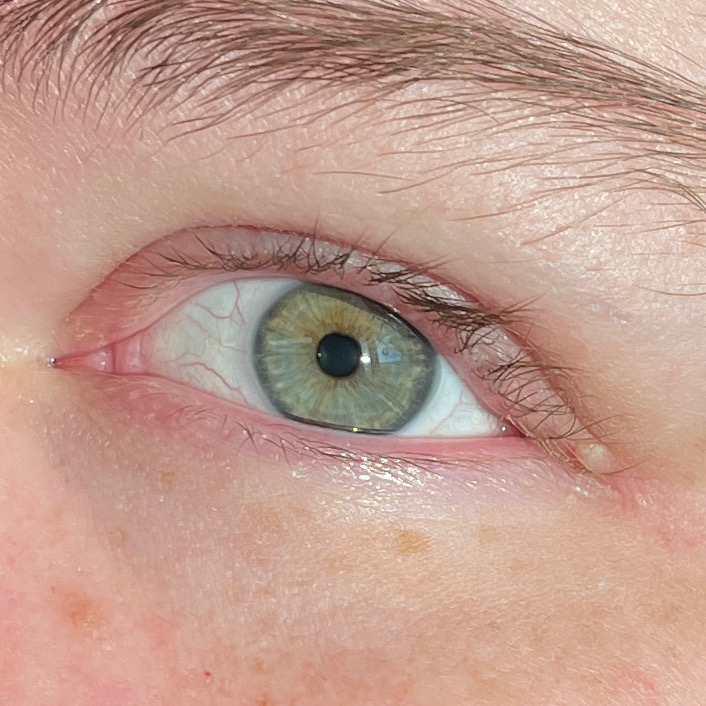|
|

I was just going to start rambling about how I listened to the Decemberists’ entire discography again and had a good time and then I realized I hadn’t copied and pasted the header in this post so I went to do that only to discover that I already talked about re-listening to the Decemberists… Cruelties of fate.
I was also going to talk about how I listened to a bunch of Bad Religion but then I typed a sentence and went… Where did I already type this? And it turns out it was tumblr (yes, tumblr still exists, yes there are people still using it, yes we’re having a great time thanks) where I got tagged in a meme and wrote about what I had been listening to, so let’s cheat the system and share that!
stuff i was listening to the week of february 6th:
(i heard the cover first and i think it’s really interesting to hear them back to back, how little he had to change to make it from the man’s perspective and how unsettling they both are for different reasons, i love covers and i love when they’re in conversation with each other!!)
- melissa etheridge, “like the way i do” (incredibleeeee of the time styling in that video lmao – also my sister gave me a melissa etheridge album for christmas when i was like 10 and later on we were both like, ohhhhh yeah lmaooo)
- wheatus, “love is a mutt from hell” (WHEATUS IS DEEPLY UNDERRATED!!!! even “teenage dirtbag” doesn’t get the credit it deserves!!!!! me and one guy on reddit get it)
- bad religion, “21st century digital boy” (as a born and bred southern californian i am legally obliged to like bad religion but i also just like them normal-style, in many ways it is country music for people who grew up eating in-n-out bc it was cheap – this song was extremely prescient and then it seemed out of touch and now it’s gone back around again)
in general i have been listening to my february playlist and also your crystals cleansing and chardonnay aunt’s favorites because the weather is alternating between miserable and tricking me with false spring
I finished listening to You Should Be So Lucky by Cat Sebastian which I thought was delightful. I feel like I’ve read a lot of books this year, but I think I’ve just been consistent enough about reading every day (at least 15 minutes at a time, at least twice a day!) that it seems like I’m blowing through things but I’m really not. Which is fine! But confusing.
We’ve been spending most of our time working to get the guest bedroom/rest of the house in order for our friends who are coming to visit at the end of the month so most of my brain energy has been there. I did use our George Foreman grill the other night and remembered how much I love it. I survived college on the original version 20+ years ago and it continues to work exactly the way you need it too with little change except the one I have now is bigger. The infomercials had it right sometimes!
And also I guess if you too are in the Twin Cities, I highly recommend The Clapping Monkey coffee in (as our house search birthed, “I don’t want to live in damn honky
”) Fridley. By far the best iced mocha I’ve had in god knows how long and some great grilled cheeses also!
Okay, I guess that’s it? We haven’t made our donations yet this month, but I think we’ll probably donate to some more mutual aid groups and I hope you’ll find some close to you or in a vulnerable area and do that too!

Since we moved, Crystal has become obsessed with a Japanese stationery store nearby-ish and in turn has gotten me hooked on the Uni-Ball One gel pen in both the .38 and the .5 because it is a smooth, quick-drying, and easy writing delight as all pens should be tbqh.
We have also gotten hooked on Tous Les Jours because their iced tiramisu latte is bomb and also who can resist cases full of very beautiful fresh pastries? I love the strawberry croissant because I am basic and fine with that and also anything that has a sausage in it because they are making hot dog experiences I had never previously considered. Oh and the milk cream/cream cheese bread/danish type thing. And their milk bread loaf. Cloud cake also great… I actually don’t think we’ve had anything we haven’t liked except the egg tarts but that’s because I am not that much of an egg person and Crystal thinks she is, but actually isn’t.
I just re-read (well, listened and boy did I think that narrator was goofy) Heated Rivalry because I have been having a hard time reading in general and Spotify offered it up to me at the start of November (probably because I was listening to a lesbian hockey book that I ended up DNFing boo) and it was nice to revisit the story again because it is very soothing and very charming. I had kind of forgotten that the show was coming out, which we are now also watching and mostly enjoying (I would enjoy it much more if I never had to see/hear anyone else talk about it, but what can you do!!) and as I made acquaintance with Rachel Reid waybackwhen (She told me I should write a book!) I am absolutely thrilled for her so will continue to overlook the most annoying people in the world and their opinions.

Also I cut all my hair off! I have been experiencing insane emotional distress around my hair for like, I don’t know, five or six years at this point that I am sure is connected to all kinds of things, but I also developed an insane… not fear, but aversion to getting a professional haircut, so it’s mostly amounted to Crystal hacking off between four and ten inches of my ponytail every six to twelve months and calling it good, but as soon as we moved, I knew I needed to just suck it up and cut it and I went in and I did it even though I was freaking out and it was totally fine (Thank you, Hope!) and I got a pretty cute cut that even looks fine when I don’t style it and I am sleeping better because my hair isn’t driving me crazy and I don’t have a headache from pulling it back and I cannot believe that I lived with it for so long for no real reason. Feel free to take this as your sign to do something you’ve been putting off! Your life will probably get better!
Alright, I think that’s it! This month we donated to Anti-War Committee MN and to help our friend Tabby get back on the road, which, if you happen to have some extra cash and donate, I would appreciate with my whole heart! As always, please let me know if you have a charity you’d like to share: ashrocketship [at] gmail.
I hope your holidays are as busy as you want and as bright as you can manage. I know it’s rough out there, but I believe in us and if you need to take a break from believing for a bit, I’ll save your spot. ♥

We are having a Stressful Time around here for a mix of good and bad reasons and as always I am handling it sooooooo well and being so mature and making so many good and sensible decisions and behaving like, so super normal that I just heard I’m getting an award for it, so that’s cool.
So anyway, as I am sure I’ve mentioned here before, I think the music Vince Guaraldi did for the Peanuts tv specials is some of the best of all time. I’m a jazz guy, and have been since I was a little kid, so I was predisposed to liking it anyway, but as I have seen many other people say on the internet in recent years, essentially: he did not have to go that hard, you know? Except he did! Because we used to really make things! And they were good! And there are reasons they have lasted!
ANYWAY, I have been Stressed and when I am stressed I put on a playlist called ‘soothe’ which is just “Great Pumpkin Waltz” and “Thanksgiving Theme” that I play on a loop because it is comforting but it also recedes into the background in a pleasant way and you can literally track the worst years of my life for a while now by whether those two songs show up in my Spotify Wrapped. (Oh this year… Oh buddy.) So that’s something I highly recommend, even if I don’t want you to be stressed enough to need it.
I have also recently enjoyed some snacks! Doritos Golden Sriracha are bomb and the most tortilla chip tasting Dorito I’ve ever eaten. (I am normally a Spicy Sweet Chili–is that what those are called?–person as far as “””new””” Doritos go–Cool Ranch 4ever ofc–but this was a fun detour.) Planters Duos peppercorn pistachio and parmesan cashews are bomb. I’ve been pretty into eating tuna on those store bought tostadas with guacamole. Caesar salads are as always the goat of summer meals.
This month we donated to PBS in both North Dakota and Minnesota, Wikipedia, and the classrooms of some teacher friends which I always recommend, especially in a couple months where the new school year flush has run out!
Okay, that’s it. Hope you guys are not wildly stressed out also, but if you are I hope it’s for a good reason! (The regular dread and horror of being alive right now doesn’t count as stress, right? Right.)

In a bout of homesickness and youthful nostalgia, I got super into dousing my cut up fruit (mostly pineapple, but also cantaloupe) with chamoy (Forritos Pulpa at this time because it’s what the Mexican grocery had) and Tajin and it is sooooooooooooooooooooooooo good. A lot of the chamoy and Tajin and Lucas type candies and stuff were too spicy for baby me (though I would absolutely house one of those Lucas spaghetti things when passed to me or the watermelon suckers covered in chamoy and Tajin on occasion even tho they killed me afterward) but my college commons had the kind of classic fruit salad mix pre-condiment-ed and ready to eat so the nostalgia has been pleasant anyway. You really gotta get the ratio just right but even when it’s wrong it’s sooooooooooooooooooooooo good.
We watched Fallout on Amazon like everyone else (in line with the zeitgeist for once!) and I really liked it a lot. I don’t play video games, so my entire experience of Fallout prior to the show was guys in college hearing the old-ass music I was listening to and going, “Is this from Fallout?” and me going, “What the fuck is Fallout?” I thought the worldbuilding was really well done without like, totally infodumping everything all at once the Ghoul is EXACTLY the kind of character I love (and is so hot lmao) and I think Lucy is such a good character to follow through the story. I thought the first seven episodes were really well-paced, but I did spend the eighth screaming for them to get the fuck on with it already, so I don’t know what that’s about really, except that canon onscreen romance always A-L-W-A-Y-S slows shit down and sucks all the energy out of it, so that sucked, since both those characters had been so good and interesting and exciting up to that point. ANYWAY, I will watch season two when it comes around I think and that’s about as good as it gets recommendation wise from me.
We also watched the first three(?) episodes of Hacks which I really like but find difficult to make myself put on for some reason? The episodes are actually sitcom length, which should in fact make them very easy to put on, but here we are. We’ll get there tho, I believe.
My attention span and ability to focus are still absolutely in the toilet but I read Zan Romanoff’s Look and really and truly loved it. Maybe, emotionally, the closest I have ever felt to having my own high school experienced rendered. Great writing, an engaging narrator, and a story that just felt very real and relatable, even when it was a bit much because being a teenager is a bit much tbqh.
Okay that’s it for now! Perhaps soon my brain will step off my own neck and I’ll be able to, like, intake information again! Dream big!

The only thing I want to wear right now are the Oilers sweatshirts we’ve accumulated from their collabs with 22fresh because the quality of the sweatshirts is soooooooooo good. They’re warm without being stuffy, heavy and a little oversized, and super comfortable. I’d probably order some straight up 22fresh ~merch if they believed fat people exist. At least the Oilers do for now tho! I accidentally made an OCD rule that I couldn’t wear team gear on game days so I haven’t gotten to wear them as much as I would have wanted, but come cooler weather and the new season we’re breaking that dumbass rule real quick!

I watched Dune and liked it a lot, even though I did not think I would at all. I also watched and loved Bottoms, which reminded me of my own high school experience way more than one would imagine based on how it all plays out, lmao.
I’ve been listening to a lot of Chappell Roan like all good queers everywhere. I feel like I’ve been listening to “Pink Pony Club” for like eighty years at this point just waiting to get a full album and I wouldn’t have thought it would live up to it, but it did!
I also listened through Men I Trust’s entire discography and was not disappointed even once. I like that you almost never know what to expect from a song, jazzy Carla Bruni-esque almost jazz or low-pro garage-y chick rock and whatever it is they’re doing at any time somehow seems to work.
I, insanely, have absolutely nothing to say about any books this month. I read the first issue of Steeple which I loved, but I can’t read anymore because every library inexplicably only has the first issue and not the first volume and yes, as you can tell, I have yelled about this repeatedly.
In other things, I am hooked on Marcella Gourmet Sweet Pickled Garlic which Crystal randomly bought at Menards. Being midwestern means knowing that some of the most delicious things you can eat will be purchased at your local big box home improvement store and ain’t that grand? Also little s’more bites from Target that we demolished in like two days. I have also become a recent Scrub Daddy convert. I’m not actually big on the original sponges, but the dishwand was recommended to me by a very long time internet friend and she was right, it whips! Isn’t adulthood thrilling?!
Okay, love you, see you soon!
|
|




